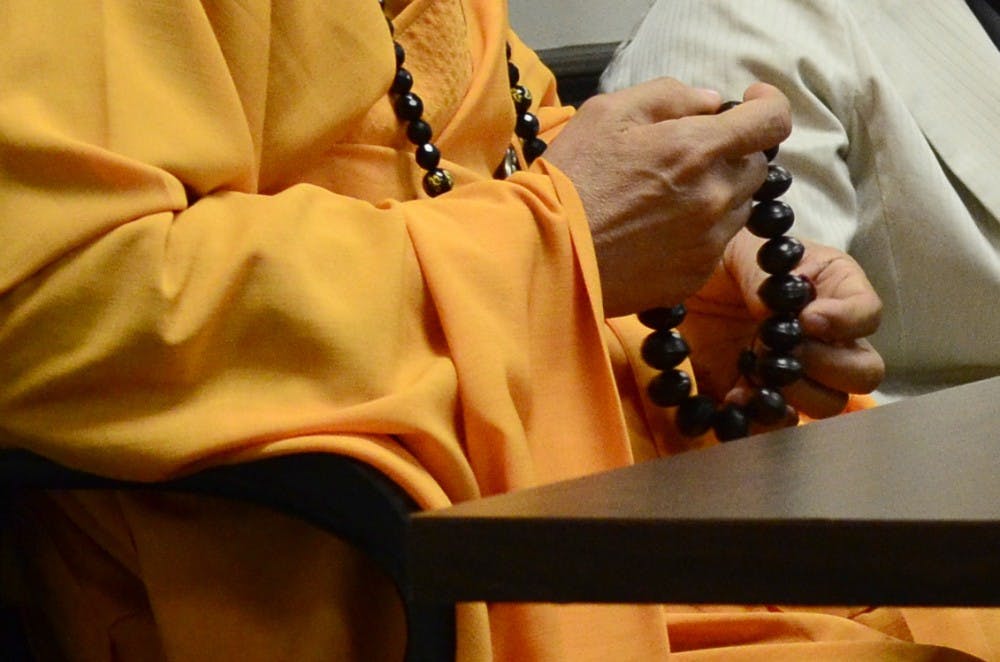People filled every seat and the floor in a Russell House meeting room to hear Thich Minh Thanh, the head monk of the Thang Nghiem Temple in Hanoi, Vietnam, deliver a lecture on Buddhism, the mind and mental health.
Hosted by USC’s Science and Religion Initiative, the lecture explored how eastern spirituality affect mental health.
Thanh became a monk in 1992 and studied Buddhism for eight years. He is known for advocating therapeutic approaches for mental illness based on Buddhist philosophies about the mind and the self.
In Thanh’s temple, 10 monks work to organize retreats, put together community activities, provide help to others and, above all, practice Buddhism. Thanh shared pictures from his life before the lecture began that depicted other monks and images from his temple.
“In Vietnam, Buddhism is not the national religion, but it is the most popular,” Thanh through Huong Nguyen, a translator from the College of Social Work. “There is still a Buddhist temple in every village.”
During the lecture, Thanh spoke about the influence Buddhism has had on Vietnam, as well as the work the monks do with mental health.
Thanh said people go to the temple for help; visits to the temple range from people who are stressed or sick, to those who want to give a blessing and to others who are diagnosed with cancer or a mental illness.
Thanh groups people who come for help into three categories: First, people who want immediate help for day-to-day struggles; second, people who need longer-term help, including those diagnosed with cancer or depression; and third, people who are mentally ill.
And each category has a different way of being helped.
The first category usually just requires talk therapy. If patients are in the second category, they stay at the temple for a while and are usually healed. The third category often has different circumstances, depending on the situation; in some cases, they preform exorcisms.
“There have been five people who have come to the temple with cancer, and after a few months, they were cured,” Thanh said.
Buddhists believe that followers should not attach, follow or dwell on their feelings and that doing good deeds will present them with karma.
“Everything belongs to everybody,” Thanh said. “It just goes from person to person.”
Following the lecture, first-year political science student Patrick Alexander said he felt as though he had been exposed to a new and different way of life.
“It shown light on a culture and religion I was not familiar with,” Alexander said.

